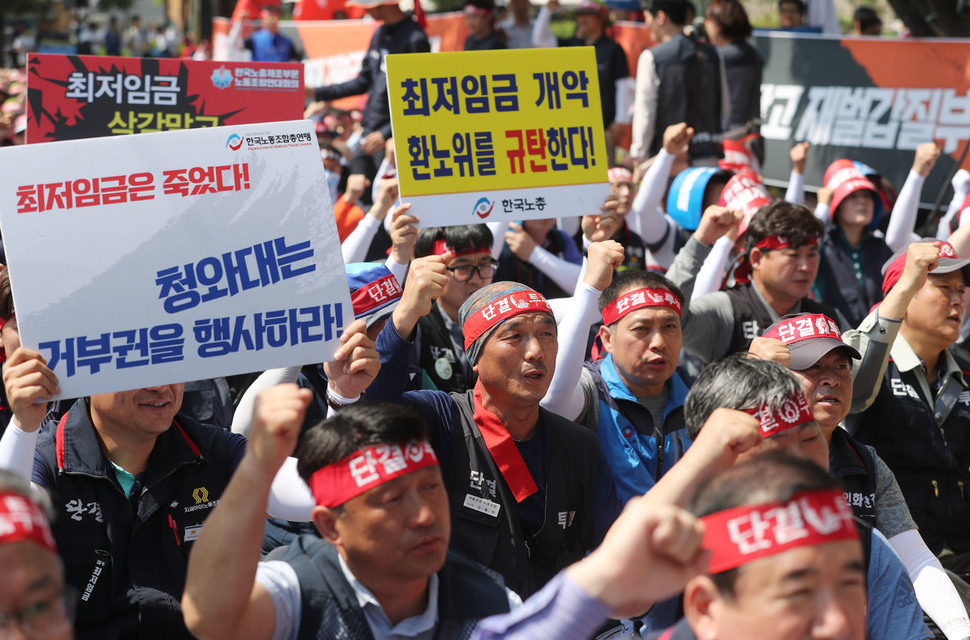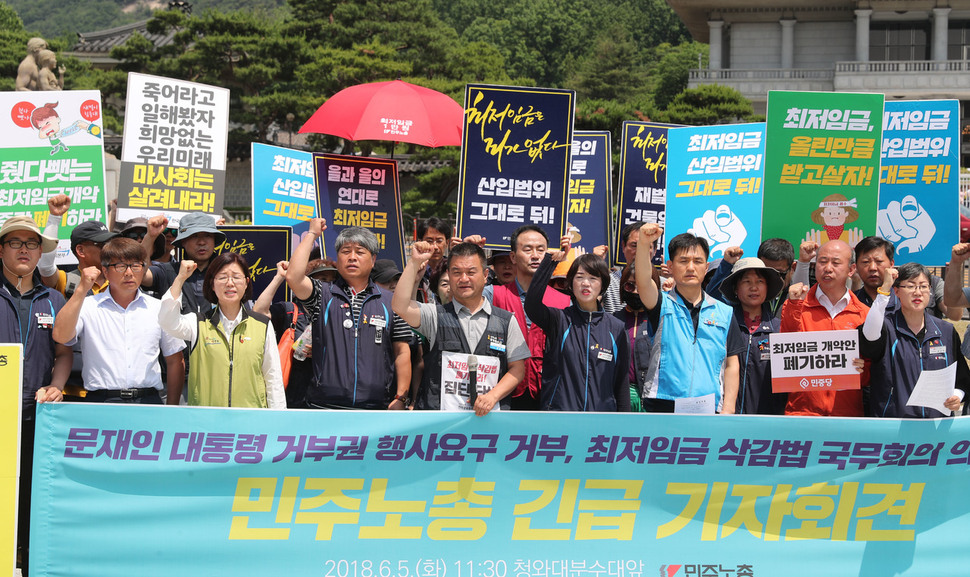 |
|
The Federation of Korean Trade Unions (FKTU) held an “emergency rally” against the Minimum Wage Act amendment in front of the central government complex in Seoul’s city centerl on June 5. (Shin So-young, staff photographer)
|
FKTU and KCTU vow to continue protests, threatening disengagement from Minjoo Party
On June 5, an amendment to the Minimum Wage Act was approved by a cabinet meeting. This revision expands the categories of income to which the minimum wage is applied. Organized labor, which has protested the revised act and demanded that South Korean President Moon Jae-in veto it, issued a warning that it is ready to take on the government. During a cabinet meeting at the main government office in Seoul that was presided over by Prime Minister Lee Nak-yeon, the government reviewed and approved an amendment to the Minimum Wage Act that will include regular bonuses and various benefits (such as allowances for meals, transportation and housing) in the calculation of the minimum wage. This means that, as of Jan. 2019, regular bonuses that exceed 25 percent of the minimum wage and fringe benefits in excess of 7 percent will be included in calculating the minimum wage. The ratio of regular bonuses included in the calculation will continue to increase in the years following until 2024, by which point all cash income will be included in calculating the minimum wage. Pushback from organized labor is intensifying. After the amendment of the Minimum Wage Act passed the National Assembly on May 28, the country’s two major union federations called on President Moon to veto the revision, but the revision was instead adopted in a cabinet meeting.
 |
|
Korean Confederation of Trade Unions (KCTU) held a press conference in protest against the Minimum Wage Act amendment in front of the Blue House fountain on June 5. (Shin So-young, staff photographer)
|







